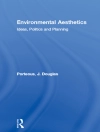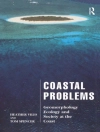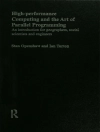The Wiley Blackwell Companion to Political Geography aims to account for the intellectual and worldly developments that have taken place in and around political geography in the last 10 years. Bringing together established names in the field as well as new scholars, it highlights provocative theoretical and conceptual debates on political geography from a range of global perspectives.
- Discusses the latest developments and places increased emphasis on modes of thinking, contested key concepts, and on geopolitics, climate change and terrorism
- Explores the influence of the practice-based methods in geography and concepts including postcolonialism, feminist geographies, the notion of the Anthropocene, and new understandings of the role of non-human actors in networks of power
- Offers an accessible introduction to political geography for those in allied fields including political science, international relations, and sociology
สารบัญ
Notes on Contributors viii
1 Introduction 1
John Agnew, Virginie Mamadouh, Anna J. Secor, and Joanne Sharp
Key Concepts in Political Geography 11
2 Boundaries and Borders 13
Anne?-Laure Amilhat Szary
3 Scale 26
Andrew E.G. Jonas
4 Territory beyond the Anglophone Tradition 35
Cristina Del Biaggio
5 Sovereignty 48
Joshua E. Barkan
6 The State 61
Alex Jeffrey
7 Federalism and Multilevel Governance 73
Herman van der Wusten
8 Geographies of Conflict 86
Clionadh Raleigh
9 Security 100
Lauren Martin
10 Violence 114
James Tyner
11 Justice 127
Farhana Sultana
12 Power 141
Joe Painter
13 Citizenship 152
Patricia Ehrkamp and Malene H. Jacobsen
14 The Biopolitical Imperative 165
Claudio Minca
Theorizing Political Geography 187
15 Spatial Analysis 189
Andrew M. Linke and John O’Loughlin
16 Radical Political Geographies 206
Simon Springer
17 Geopolitics/Critical Geopolitics 220
Sami Moisio
18 Feminist Political Geography 235
Jennifer L. Fluri
19 Postcolonialism 248
Chih Yuan Woon
20 Children’s Political Geographies 265
Kirsi Pauliina Kallio and Jouni Häkli
Doing Politics 279
21 Electoral Geography in the Twenty?]First Century 281
Michael Shin
22 Nation and Nationalism 297
Marco Antonsich
23 Regional Institutions 311
Merje Kuus
24 The Banality of Empire 324
Luca Muscarà
25 Social Movements 339
Sara Koopman
26 Religious Movements 352
Tristan Sturm
27 Sexual Politics 366
Catherine J. Nash and Kath Browne
28 The Rise of the BRICS 379
Marcus Power
29 Social Media 393
Paul C. Adams
Material Political Geographies 407
30 More?-Than?-Representational Political Geographies 409
Martin Müller
31 Resources 424
Kathryn Furlong and Emma S. Norman
32 Political Ecologies of the State 438
Katie Meehan and Olivia C. Molden
33 Environment: From Determinism to the Anthropocene 451
Simon Dalby
34 Financial Crises 462
Brett Christophers
35 Migration 478
Michael Samers
36 Everyday Political Geographies 493
Sara Fregonese
Doing Political Geography 507
37 Academic Capitalism and the Geopolitics of Knowledge 509
Anssi Paasi
Index 524
เกี่ยวกับผู้แต่ง
John Agnew is Distinguished Professor of Geography at the University of California, Los Angeles. He has taught at a number of universities including Syracuse University, the University of Chicago, and the University of Siena. He has authored or co-authored numerous books including Berlusconi’s Italy: Mapping Contemporary Italian Politics (2008) and Globalization and Sovereignty (2009). He is co-editor of the Wiley Blackwell Companion to Human Geography (2011).
Virginie Mamadouh is Associate Professor of Political and Cultural Geography at the University of Amsterdam and an editor of the international academic journal Geopolitics. Her research interests are in European geopolitics, new media and multilingualism. She is co-editor of The Theory and Practice of Institutional Transplantation (with Martin de Jong and Kostas Lalenis, 2002), Critical Essays in Human Geography (with J. Agnew, 2008), and Urban Europe: Fifty tales of the city (with A. van Wageningen, 2016).
Anna J. Secor is Professor of Geography at the University of Kentucky and the Hajja Razia Sharif Sheikh Professor of Islamic Studies. Her research focuses on theories of space, politics, and subjectivity. Recently she has developed ideas of topology in geography by engaging the work of Lacan, Deleuze, and Agamben. Her research on Islam, state, and society in Turkey has been funded by the National Science Foundation.
Joanne Sharp is Professor of Geography at the University of Glasgow. Her research interests are in feminist, postcolonial, cultural and political geographies. She is the author of Geographies of Postcolonialism: Spaces of Power and Representation (2009) and editor of The Ashgate Research Companion to Critical Geopolitics (with Klaus Dodds and Merje Kuus, 2013).












